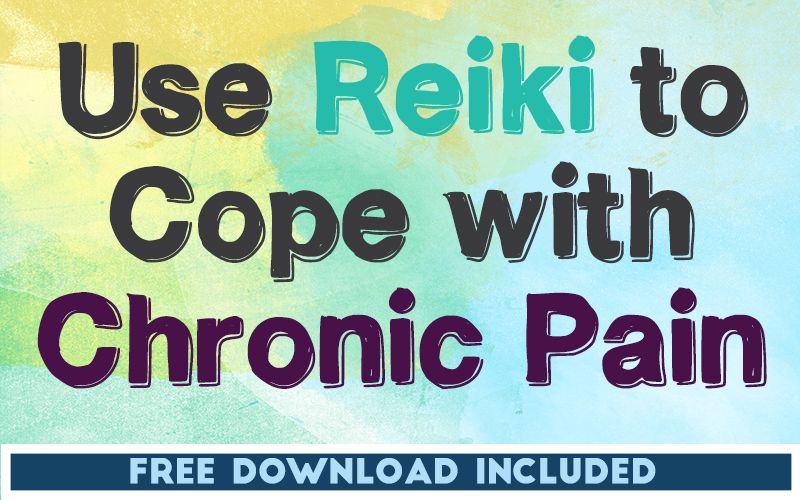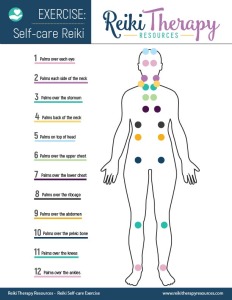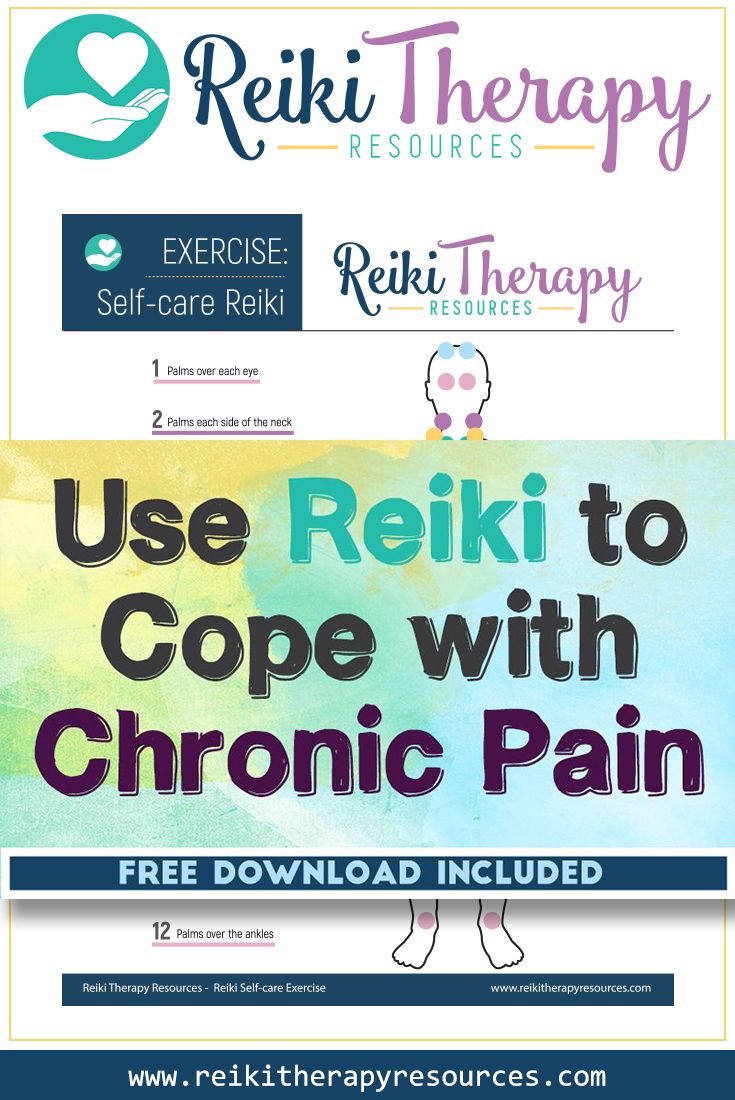
THIS POST INCLUDES:
——————————————–
1. Definition of Chronic Pain
2. Impact of Chronic Pain
3. How Reiki can help with chronic pain
4. Free Download
DEFINITION OF CHRONIC PAIN
Pain can mostly be identified into two primary categories:
- Acute – expected to occur over a brief period of time and treated with a specific protocol
- Chronic – occurs over an unpredictable length of time and involves multiple non-specific treatment methods
Some medical researchers indicate that chronic pain refers to pain that persists beyond the 3-6 month period.
Chronic pain is also linked with other mental health issues such as anger, stress, anxiety, and depression. Given these associations plus the enduring and unspecific nature of chronic pain, it’s no surprise that people who experience chronic pain often look outside of the traditional medical model to seek relief.
IMPACT OF CHRONIC PAIN
With chronic pain, psychological distress is enduring and can impact an individual’s wellbeing. Chronic pain may result in a permanent disability or change in circumstances where individuals are limited to engage in life activities that they used to enjoy.
For those who experience chronic pain, the demanding physical problems often overshadow the associated emotional problems that are associated with limited physical movement. Addressing physical pain can provide some emotional relief when the person feels there is a reprieve to their suffering.
Chronic pain has a cumulative impact where the body habituates to chronic pain and individuals may begin to develop new beliefs about their physical and mental wellbeing. This may impact their ability to ask for support as well as their desire to undertake any activities they may have previously enjoyed. This ultimately impacts their ability to view their life as a source of enjoyment.
Chronic pain can have a significant impact on self-identity. People can be impacted by changes to their daily routines and in many cases, they can experience a loss of enjoyable activities which might include social interaction with family and friends.
Career prospects may also be limited by chronic pain which can impact a person’s feelings of autonomy, independence, and self-worth. If children experience chronic pain, this may affect their social development and they may feel isolated from friends if they are excluded from their social circles.
HOW REIKI CAN HELP WITH CHRONIC PAIN
People who suffer from chronic pain can experience psychological issues that are linked to both physical and emotional experiences.
Those who have chronic pain often develop strategies to cope with the stress that chronic pain brings. Chronic pain sufferers learn coping skills for physical pain and have to adapt to living with limitations and restrictions that chronic pain may cause.
Reiki can help those with chronic pain develop coping strategies so the client can engage in physical treatment and meet the psychological demands that may affect them. This includes pursuing mindfulness, maintaining motivation, and holding a positive mindset that disconnects from fear and embraces a more loving approach to how they view themselves in the context of their chronic pain experience.
Other areas that Reiki can help clients with chronic pain include:
- Establishing self-care practices
- Connecting with nature to promote positive energy connections
- Relaxation skills
- Reducing physical suffering through relaxation exercises
- Coping with frustrations
- Maintaining self-identity
- Decreasing anxiety around physical pain
- Reduce anger
- Cope with fatigue
- Reduce physical tension
For many people with chronic pain, physical discomfort is an enduring experience. Reiki can help people explore their relationship to pain and develop relaxation strategies to cope with their experience.
FREE DOWNLOAD
SIGN UP below to receive your FREE DOWNLOAD. Once you enter your email address, you will receive access to the Free Self-Care Exercise.

BUILD YOUR REIKI REFERENCE MATERIALS:
Pin this image to your Pinterest board.

SHARE KNOWLEDGE & PASS IT ON:
If you’ve enjoyed this post, please share it on Facebook, Twitter, Pinterest. Thank you!
